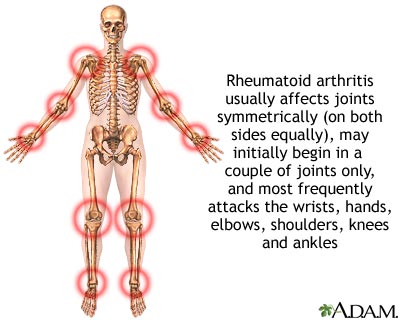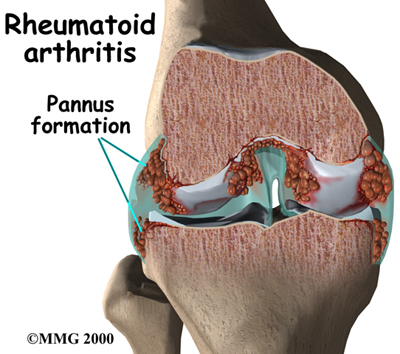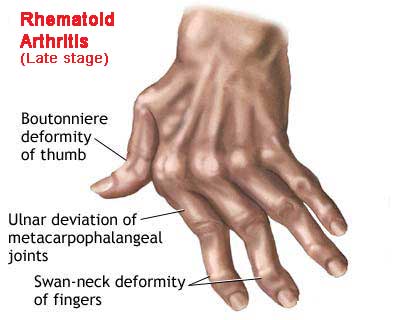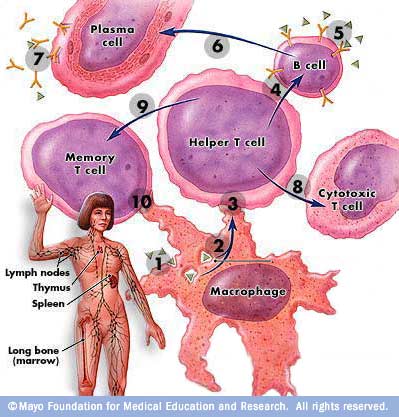مرحبا بك في هذا المنتدى !
يبدو أنك جديد هنا. إذا كنت تريد أن تتورط، انقر فوق أحد هذه الأزرار!
روابط سريعة
الأقسام
- 9.5K جميع الأقسام
- العلوم الطبية الأساسية Basic Medical Sciences
- علم التشريح العام و الجنين Anatomy and Embryology
- علم وظائف الأعضاء (الفيزيولوجيا) Physiology
- علم النسج Histology
- علم النسج العام ( عدا الأسنان ) General Histology
- علم النسج الخاص بالأسنان Oral histology
- علم الخليةو الحياة Biology
- علم التشريح المرضي Pathology
- التشريح المرضي العام ( عدا الأسنان ) Pathology
- التشريح المرضي الخاص بالأسنان Oral Pathology
- علم الأحياء الدقيقة Microbiology
- الجراثيم و الفيروسات Germs and Viruses
- الطفيليات الطبية Parasitology
- الفطور و الحشرات Insects and Fungi
- علم الوراثة الطبية Medical Genetics
- علم المناعة الطبية Medical Immunology
- 4 العلوم الطبية السريرية Clinical Medical Sciences
- الأمراض الداخلية Internal Medicine
- 4 الجراحة Surgery
- التوليد و الأمراض النسائية Gynacology & Obstetrics
- الصحة الجنسية Sexual Health
- طب الأطفال Pediatrics
- الجلدية Dermatology
- العينية Ophthalamology
- انف و أذن و حنجرة Ear, Nose, and Throat
- الطب المخبري labratory Medicine
- علم الأورام Oncology
- الطب الشرعي Forensic Medicine
- الطب النفسي Psychiatric
- التغذية والطب البديل Nourishments and Alternative Medicine
- طب الطوارئ و الإسعافات الأولية Emergency Medicine And Primary aids
- متلازمات طبية Medical Syndromes
- علم الأشعة Radiology
- طب الأسنان Dental Medicine
- التعويضات المتحركة الكاملة و الجزئية Removable Prothodontics
- المداواة الترميمية operative dentistry
- المداواة اللبية Endodontics
- طب أسنان الأطفال Pediatric Dental
- جراحة الوجه والفكينoral surgery
- التعويضات الثابتة Fixed Prothodontics
- المواد السنية dental materials
- النسج حول السنية periodontology
- التقويم Orthodontics
- منتدى فنيي الأسنان dental technicians
- طب الفم العام general oral medicine
- علم الأشعة Radiology
- حالات سريريةClinical Cases
- أخر مستجدات طب الأسنان last news
- المنتدى الطبي السني العامgeneral dentistry
- علم الصيدلة Pharma
- علم الأدوية
- علم الأدوية Pharmacology
- أدوية الطوارئ Emergency drugs
- المضادات الحيوية Antibiotics
- الأدوبة المسببة للتشوهات الجنينية Teratogenic drugs
- أدوية Drugs
- علم الكيمياء Chemistry
- كيمياء حيوية سريرية Clinical Biochemistry
- الكيمياء العامة و العضوية و الفيزيائية General & organic chemistry & physical
- الكيمياء الحيوية Biochemistry
- الكيمياء التحليلية و التحليل الآلي Analytical chemistry and the automated analysis
- علم عقاقير Pharmacognosy
- الطب البديل Alternative Medicine
- علم الأعشاب الصيدلانية Pharmaceutical Herbs
- التكنولوجيا الصيدلية Pharmatical technology
- الصيدلانيات Pharmaceutics
- الصيدلة الحيوية والحرائك الدوائية Biopharmaceutics & Pharmacokinetics
- الصناعة الدوائية Drug Industry
- علم السموم Toxicology
- الوصفات الطبية Prescriptions
- صيدلية المجتمع و أدوية OTC Medicines OTC
- الكيمياء الصيدلية Pharmaceutical chemistry
- الصيدلة سريرية و صيدلية المشافي Clinical & Hospital Pharmacy
- دمويات و مناعيات hematology & immunology
- مراقبة جودة الأدوية Drug Quality Control
- البيولوجيا الجزيئية Molecular Biology
- الصحة العامة و تلوث البيئة General Health
- المنتدى الصيدلاني العام
- الجودة الغذائية Food quality
- قسم الجودة الطبية Department of Medical Quality
- قسم الجودة العام General Quality Department
- قسم السلامة والصحة المهنية Department of Occupational Safety and Health
- قسم جودة وسلامة الأغذية Department of Food Quality and Safety
- المنتدى الطبي العام
- المنتدى الطبي العام
- منتدى العلوم والتكنولوجيا الطبية Medical Technology
- قانون و أخلاقيات المهنة
- تاريخ و آداب الطب
- الدراسات العليا و الدراسة في الخارج
- امتحانات Medical Exams
- تبادل الكتب الطبية و الميديا و البيانات الطبية
- مواضيع طبية غير مصنفة
- قسم الأسرة و المجتمع
- العناية بالمرأة الحامل و المرضع
- تربية الأطفال
- الصحة العامة
- التغذية الصحية و الغذاء الصحي
- أسريات
- 2 استراحة العيادة السورية
- المنتدى العام
- نشاطات و ترفيه
- 1 إسلاميات
- تطوير الذات و البرمجة اللغوية العصبية NLP
- المنتدى التقني
- مكتبة الصور و التصميم
- 1 المنتدى الثقافي و الأدبي
- المنتدى الرياضي
- منتدى اللغات Foriegn Languages
- الساحة العامة
- ساحة الحوار و النقاش
- ترحيب و تعارف
- قسم الاستشارات الطبية
- البحوث والندوات العلمية
- الاقتراحات و التطويرات
- الأقــســـام الــعـــامــة
- منتدى الحوار العام
- المواضيع العامة القديمة المستردة
- المواضيع الحاوية على مرفقات
التهاب المفاصل الرثياني Rheumatoid Arthritis
What is Rheumatoid Arthritis?
Rheumatoid arthritis is a disease characterized by pain and swelling (inflammation) in and
around joints, stiffness in the joints and muscles which is more apparent in the morning and
fatigue. Joint swelling is common and the small joints of the hands and feet are those most
usually affected, but it can occur in any of the joints. Rheumatoid arthritis may start gradually or
with a sudden severe attack. The disease is chronic. However, periods of complete freedom from
symptoms may occur. Rheumatoid arthritis not only damages joints but can also affect the
muscles, lungs, skin, blood vessels, nerves and eyes. Rheumatoid arthritis is a systemic disease,
meaning it affects the whole body and can result in symptoms like fever, fatigue and weight loss.
The patient may feel unwell, depressed and easily tired.
Who Gets Rheumatoid Arthritis?
Anyone, at any age, can get rheumatoid arthritis. Most commonly it appears between the ages of
25 and 50. Women are affected about 3 times as frequently as men. Rheumatoid arthritis can
occur in children.
What Causes Rheumatoid Arthritis?
The precise cause of rheumatoid arthritis is not yet known. We know that the inflammation in
rheumatoid arthritis appears to be due to a disorder in the body's immune defense system. This
leads to an immune reaction to the body's own cells. The continuous inflammation in the joints
accounts for the damage of joints. Some researchers suspect that a virus may trigger the
inflammatory process in rheumatoid arthritis although the nature of the virus is unknown. Also, it
may be that the disease occurs only in people with a genetic or inherited tendency toward the
disease. According to scientific evidence now available, rheumatoid arthritis is NOT CAUSED
by:
• cold, dampness or changes in weather
• lack or excesses of vitamins or any other dietary elements such as fats, sugars, acids or
metals
• faulty absorption or elimination of substances from the bowel
• infection in the internal organs of the body
What are the effects of inflammation in rheumatoid arthritis?
Early in the disease, most people complain of fatigue, stiffness and aching in the joints. Muscle
stiffness commonly occurs in the morning. Usually some of the joints gradually become warm,
painful and swollen. Swelling of the joint is partly due to increased fluid in the joint cavity and
partly due to thickening of the lining of the joint capsule. The joints most affected are those in
the hands and feet. Often the same joints on both sides of the body become affected. That is, the
problems occur in both hands, both feet, both elbows and so forth
If the pain is very severe, the muscles surrounding the affected joints contract and stiffen up.
This is called muscle spasm. People with rheumatoid arthritis may lose their appetite and their
weight. General tiredness and fatigue are related to the amount of inflammation present.
Sometimes, depression sets in and excessive worry about having arthritis impedes improvement.
Other possible body changes include anaemia (low red blood cell counts), lumps or nodules
under the skin, inflammation of the eyes and pleurisy (pain in the chest on deep breathing).
Diagnosis
The diagnosis of rheumatoid arthritis may require several visits to the doctor over a period of
time. You will be asked questions about your symptoms. The doctor will perform a physical
examination, looking at and inspecting each joint for signs of inflammation or other problems.
The diagnosis will be based on the overall pattern of the symptoms, physical examination, blood
tests and x-rays.
The doctor may drain fluid from your joints and examine it to make sure the arthritis is not due
to an infection or some other cause. The fluid is removed by putting a needle into the joint.
Rarely, your doctor may remove small bits of inflamed joint tissue or nodules for examination
with a microscope. This procedure is called a biopsy.
Is There Any Effective Treatment for Rheumatoid Arthritis?
YES. Treatment involves a combination of medication, rest, exercise and methods of protecting
the joints.
Medication
This consists of anti-inflammatory drugs which reduce the swelling, pain and stiffness which
result from the inflammatory response. They are called non-steroidal anti-inflammatory drugs
(NSAIDs) and include aspirin, ibuprofen diclofenac and piroxicam. A patient's response to a
particular drug and the degree of disease activity dictate the potency of the drugs prescribed.
Some patients require drugs called "disease-modifying" agents such as sulphasalazine or
methotrexate. Newer drugs such as Enbrel, Humira and Remicade are also available. These
drugs can have side effects so treatment should be closely supervised by your rheumatologist.
The main aim of treatment is the control of the inflammatory process early so as to lessen the
disability that can result from long-term effects of joint destruction.
Corticosteroids are drugs related to the natural hormone cortisone. They have side effects but are
usually used in low doses for rheumatoid arthritis. If used in doses of 5 -10 mg daily the side
effects are less. The decision to start or stop corticosteroids must be made by your physician.
Exercise
Once inflammation is satisfactorily controlled, appropriate and regular exercises is essential to
strengthen muscles weakened by disease. Rheumatoid arthritis often makes joints stiff and
restricts their motion if they aren't used regularly. Exercises are designed to meet the needs of
each patient and should be monitored by professionals specializing in physical medicine.
Heat and Cold Treatment
Heat and cold treatment are effective means of relaxing muscles and relieving pain in arthritic
joints. A hot bath, hot pads, paraffin wax and cold compresses are some methods frequently
used.
Adequate Rest
Rest decreases the swelling and pain around inflamed joints and reduces fatigue. The number of
hours that a patient should rest every day and the way they should rest should be reviewed with
your doctor. In some cases, splints may be prescribed to rest joints, hold them in correct
positions and prevent muscles around joints from becoming too tight.
No special diet causes or cures rheumatoid arthritis. Nevertheless, a well-balanced and nutritious
diet is beneficial. If you are overweight, a diet to reduce weight will reduce stress on affected
joints.
Is There a Cure for Rheumatoid Arthritis?
NO. But with appropriate treatment the disease can be kept under control. There is still no drug
or remedy which will wipe out the disease in all cases.
What is the Outlook for Patients?
Rheumatoid arthritis can be mild, moderate or severe. For most people who begin to follow a
proper treatment program early in their illness, the amount of permanent joint damage is small.
In fact, most of the disabilities due to rheumatoid arthritis are preventable. A small minority of
patients develop severely deformed joints. This is because of unusually severe disease or neglect.
In the early stages of the disease with appropriate treatment, the majority of patients improve.
Most patients with rheumatoid arthritis can look to the future with confidence.
Images For Rheumatoid Arthritis





